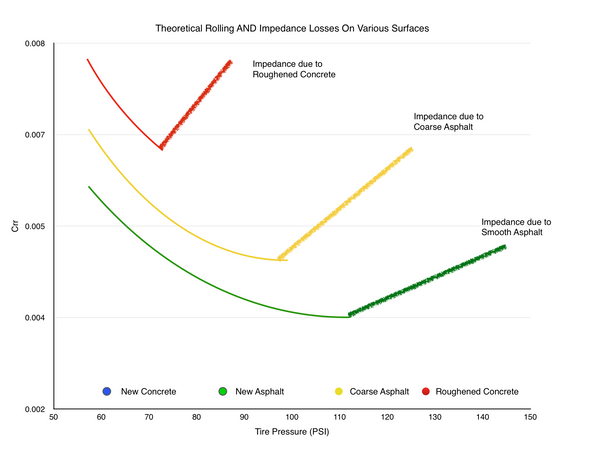On the AeroWeenie site they have an online calculator that uses .004 as a default for a typical road surface. Changing that number to .005 results in a about a 1 minute add to a 40k ride (79kg, 180w).
http://www.aeroweenie.com/calc.html
So my question is what type of road surface would I expect to be looking at in that scenario? And more broadly what are the high and low numbers one would expect to see in real life?
"They know f_ck-all over at Slowtwitch"
- Lionel Sanders
http://www.aeroweenie.com/calc.html
So my question is what type of road surface would I expect to be looking at in that scenario? And more broadly what are the high and low numbers one would expect to see in real life?
"They know f_ck-all over at Slowtwitch"
- Lionel Sanders
